Dear Students of the Postgraduate School of Thinking,
In 2017, the United Nations (UN), the World Health Organization (WHO) and the Organization for Economic Co-operation and Development (OECD) all publicly declared Systems Thinking as a key leadership skill and that it is necessary to deal with the fundamental interconnectedness of complex, local-to-global economic, social and environmental issues.
We need systems change is the most cited popular mantra in the public climate crisis debate!
Welcome to the module on “Systems Thinking” (from systems sensing to systems acting). We will meet on Thursday, March 12th to explore together if systems genuinely exist and thus if we are able to change them through design or interventions.
In this module we will inquire what a galaxy and a biological cell, an organism and an organization, technology and social fabric, an ecosystem and economy and many more unities have in common. We will inquire the potential of thinking in interconnectedness, circularity, emergence, wholes, synthesis and relationships and how this skillset may change our perception, reasoning and action.
System theory or systems science is the transdisciplinary study of systems in which System Thinking can be learned. However, Systems Thinking is more than just a collection of tools and methods (which are so many available specific to the context), it is at its core an underlying philosophy and worldview. With systems thinking we can move from observing events, to identifying patterns of behavior overtime, to surfacing the underlying structures that drive those events and patterns.
But the journey starts with you, a human, one particular system of systems, a complex beauty or beautiful complexity and the most beautiful unity of you, your mind. Thus, we will also observe and experience our minds through meditation practice as one sense-ability to cultivate. A special request by the School of Thinking which I will try to fulfill for you. Quieting the mind, then releasing into the moment without the need to “do anything”, just being fully present, and then allowing your perceptions to flow with whatever arises in your field of awareness, this is the practice.
I am looking forward to meeting you soon and share with you my own personal experience as a system scientist, innovator and Buddhist practitioner since more than twenty years and my own personal quest, listening into the systemic nurturance spaces and seeking the systemic leverage points for the emergence of a global eco-civilization.
Stefan Blachfellner
As I was asked to think of a meaningful assignment for you to prepare for our meeting, I heartily ask you to:
- Bring along with you one item that represents you or your interest, which fits in your pocket or your bag. Together we will be able to experience systems thinking for practice in an interactive playful design with your representatives.
- Reflect on the one system you want to change. Examples can be your body, your mind, your family, any other complex relationship, your organization, a social, political, business, environmental or technological challenge. Make notes or sketches about the system of your desire, what you think it is called, it looks like, you observed, and why you want so desperately see or experience a change of this specific unity. Bring your notes and sketches with you in any analog or digital form which fits your working style.
Further readings, only if you want to dive deeper in the philosophy and worldview:
- Laszlo, Ervin (1996). The Systems View of the World: A Holistic Vision for Our Time (Advances in Systems Theory, Complexity, and the Human Sciences). Hampton Press
- Bertalanffy, Ludwig (2015). General System Theory: Foundations, Development, Applications (Revised). George Braziller Inc
Further readings, only if you want to dive deeper in the science behind systems:
- Mobus, George E.; Kalton, Michael C. (2014). Principles of Systems Science (Understanding Complex Systems). Springer
- Rousseau, David; Wilby, Jennifer; Billingham, Julie; Blachfellner, Stefan (2018) General Systemology: Transdisciplinarity for Discovery, Insight and Innovation. Springer


